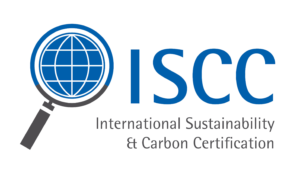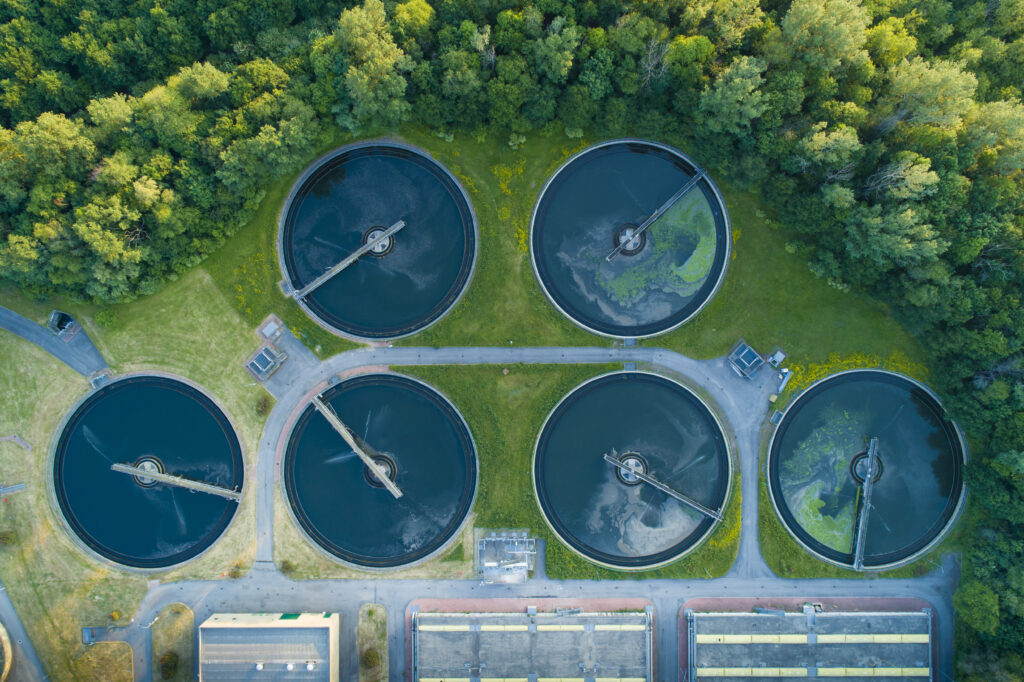Poland has a great potential for biomethane production. Interview with Jasper Nillesen (REFUELS) by Anna Lembicz (Izba Gospodarcza Wodociągi Polskie) published in the June edition of Polish waterworks quarterly (kwartalnik Wodociągi Polskie).
Anna Lembicz (Wodociagi Polskie): The technology of generating heat and electricity from biogas through cogeneration is widely known and applied. Interest in the subject of biogas treatment to natural gas quality – i.e. biomethane – is growing at an incredible rate. The economic and climate benefits resulting from the production of biomethane from sewage sludge compared to the production of electricity and heat from the same material seem obvious. The production of biomethane still requires regulatory clarification and successful projects on this subject, which will demonstrate obvious benefits. Your company, REFUELS in the Netherlands, specialises in sourcing and trading biomethane. What brings you to Poland?
Jasper Nillesen (REFUELS): I have been involved in the use of renewable energy sources (RES) for over 10 years. First as an engineer and then in various roles, from project management to director. In 2014, I founded REFUELS, a Dutch company that is among the five leading companies in Europe for the use of biomethane as biofuel in transport. I would like to share our knowledge and experience, because I believe that Poland has a huge potential to produce biomethane and within a few years, it could become one of the largest producers and suppliers of this gas in Europe. The aim of REFUELS is to work with Polish companies and other interested parties to carry out at least two biomethane production projects this year, i.e. setting up biomethane plants. Companies in the water and sewage sector have at their disposal an ecological raw material, which is ideal for its production.
A.L.: – What can you say about the future of biomethane in Poland? What is the Polish potential compared to the situation in neighbouring countries, for example?
J.N.: –Many European countries have introduced various support systems for biomethane production, which has resulted in a significant increase in the biomethane market. The EU policy on biomethane and quality requirements is reflected in the EU RES directives. European countries with a very extensive gas network, have an advantage over countries with a less extensive network. The extensive infrastructure allows for a relatively easy and inexpensive connection to the network. This has also resulted in a growing biomethane market in Europe. The Polish gas network is well developed. We know that the Polish Gas Company (PSG) is working to expand the national gas network. Now, the infrastructure does not allow biomethane plants to connect to it anywhere. We believe that in the future the PSG should consider in particular the locations where biomethane plants could be connected to the network. I know that the Union of Producers and Employers of the Biogas Industry (UPEBI) is also in favour of this. The PSG is willing to cooperate and recognises the importance of the topic. This is a very positive signal.
I know that a working group on biomethane, under the coordination of the UPEBI, is currently working on a set of rules for the industry. We expect more legislative information for the biogas sector and for biomethane production to be announced in the coming months.
Nevertheless, the experience of REFUELS is that, in recent years, the production and consumption of unsubsidised biomethane has clearly increased and will increase further. The value of unsubsidised biomethane is much higher than supported production of biomethane. Of course, this is only possible if there is a declared customer who commits to a long-term contract with the producer at a better price for biomethane than the current/existing alternative, i.e. electricity and heat production.
A.L.: – Could you be more specific about this? What benefits do you see for companies in the water and sewage sector?
J.N.: – We notice an increasing interest in biomethane in Poland. A very important achievement for the industry is the fact that the quality parameters for biomethane have been established by the Chamber of Commerce for Gas (IGG). They determine the quality of biomethane that can be injected into the gas network. Another important fact is that the gas network operator, the PSG, has declared that it is possible to physically connect biomethane plants to the gas network. Thirdly, PGNiG has announced that it will soon announce a new strategy for the coming years and we assume that biomethane will have a significant place in it. My sources say that we will find out more in the coming weeks. I fully support the statement by the Minister for Climate Change, Michał Kurtyka, that the implementation of the European Green Deal strategy offers a great opportunity to strengthen the innovative position of the country. I am convinced that this certainly applies to Poland in the perspective of green gas. I will give a concrete example on the basis of a wastewater treatment plant. A wastewater treatment plant generates electricity and heat from biogas by means of highly efficient cogeneration. Part of the electricity and heat is used for the purposes of the plant, and part is fed into the grid. The alternative is to produce biomethane from biogas. In addition to the cogeneration plant (CHP), an upgrading facility can be installed to produce biomethane, i.e. natural gas. A combination of wind or solar energy and biomethane production is also possible. There is a difference between wastewater treatment plants that have already invested in biogas production, which is converted into electricity and heat production and companies that are less active in the field of RES. In both cases, the production of biomethane is economically attractive and especially for companies that do not yet ferment the raw material profits from climate change perspective can be very high. The climatic and economic returns go hand in hand. Biomethane significantly reduces the amount of CO2 emitted to the environment, which positively affects the achievement of climate objectives such as zero emissions and reduction of greenhouse gas emissions, and the demand for the product guarantees an attractive price. The great advantage of wastewater treatment plants, which already have biogas plants, is that they have the necessary permits (including environmental ones) and extending the biogas plant’s capabilities to an upgrading facility to produce biomethane should be relatively easy. For wastewater treatment plants that do not yet produce biogas and where methane evaporates and pollutes the environment, it is important to think about production opportunities as soon as possible. Managing and use of sewage sludge contributes to achieving the objectives of the circular economy.
A.L.:- You say that it is necessary for existing wastewater treatment plants to switch to biogas production as soon as possible, because methane leakage is, from an environmental perspective, highly undesirable. How can this be achieved?
J.N.: – We start with an analysis which shows technical and energy feasibility and, secondly, the economic benefit. At REFUELS, we developed a scheme for this analysis in the form of a joint project organisation. We use our experience from other projects for the analysis. This allows us to gain a quick insight into the possibilities of biomethane production. I invite all interested parties to carry out this analysis and contact us for initial exploration. Once again, I would like to stress that wastewater treatment plants have an ecological raw material for biomethane production. For the manufacturer, a long-term product take-off/ purchase guarantee is important. From the perspective of investors, this guarantee is important for the investment and operation of biomethane plants. REFUELS concludes contracts of this type with biomethane producers for a period of 8 to 12 years. From a quality guarantee perspective of the biomethane to be injected into the network, we use the German International Sustainability & Carbon Certification (ISCC). It covers the entire production chain and is internationally recognised.
A.L.: – May I conclude that you are very optimistic about the potential for biomethane production by the water and sewage industry?
J.N.: – My experience is that waiting for all aspects – from a regulatory perspective, for example – to be developed does not guarantee better or faster success. At REFUELS, we have a lot of experience in setting up and executing pilot projects that are successful and which provide new insights and solutions. We believe in what we do. We also believe that success is partly based on connecting and cooperating with all stakeholders. In this way, we successfully manage operational and financial risks. More than 100 wastewater treatment plants in Poland produce biogas and have sufficient raw material to produce biomethane. There are more than 3000 wastewater treatment plants here, so the potential is great. In 2019, I participated in two conferences – Green Gas Poland 2019 (organised by UPEBI) and the Second Biomethane Congress (organised by the “Rynek Biogazu” magazine) – and the vast majority of participants with whom I have spoken on this topic are also convinced of the success and potential of biomethane production in Poland. In addition, although there are still a lot of topics to be further developed, e.g. support guidelines, Poland has great potential and it is estimated that every year the production can quietly exceed 7 billion m3 of biomethane, which can be used for various purposes: as natural gas injected into the network and/or as biofuel. I am certainly optimistic and I think that now is the right time to invest in the production of this gas.
We provide contact details with company representatives to those interested:
Maria Katarzyna Pieśla marysia@refuels.nl tel. +31 6 34 82 43 32
Jasper Nillesen jasper@refuels.nl
Source: Kwartalnik W O D O C I Ą G I P O L S K I E 1 2 ( 6 4 ) / 2 0 2 0



